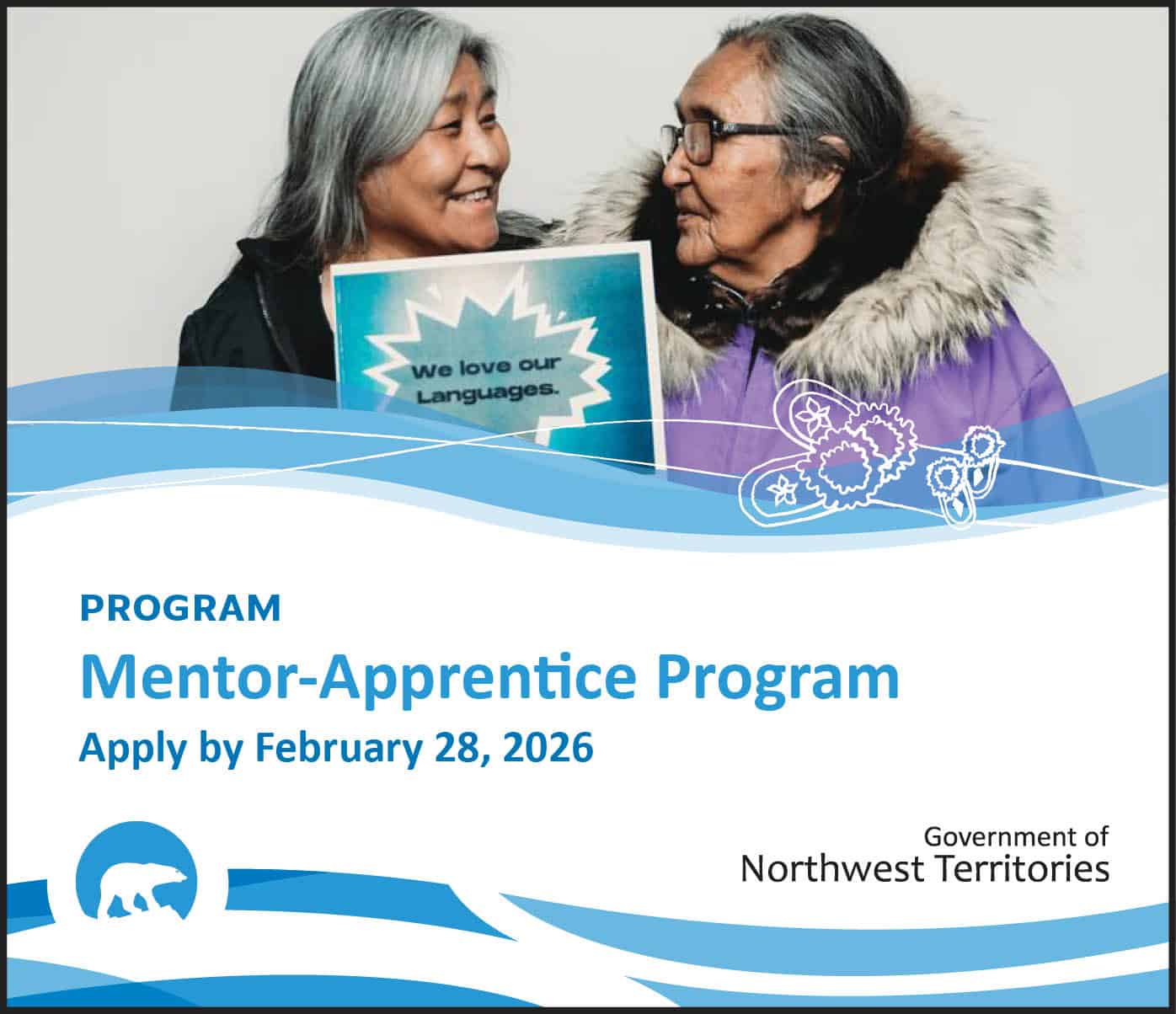Community
Leading by example: LKFN chief embraces mother tongue

Beginner Dene Zhatie classes kicked off in Liidlii Kue First Nation (LKFN) this week.
Among a dozen students was also Chief Kele Antoine.
“It was great,” he says, the room was filled with laughs, lingering smudge and a ton of supportive energy.
“It’s just a really good environment to learn and grow together and help revitalize and protect our most precious resource, which is our language,” he says.
The hardest part he stresses, is just getting started.
Chief Antoine notes the impacts of Canada’s ugly history that have hindered the use of traditional language in the community and across the NWT.
“It’s important to lead by example,” he says. “None of us wanted to grow up without our language.”

A dozen students met in the LKFN board room to learn Dene Zhatie. (Photo courtesy of LKFN)

“It’s important to take a stand and make that decision to learn the language to take back some of that which is lost, and honor our ancestors that came before us,” says Chief Antoine. (Photo courtesy of LKFN)
It was a full circle moment for the Chief, because Mary Jane Cazon, one of the instructors, also taught him when he was a young boy.
“It was kind of like a little trip down memory lane,” he says.
As a younger man, he remembers feeling shy or a sense of shame for not knowing his language. Now he embraces the opportunity to continue learning.
“By learning and speaking our Dene language, we are not only preserving our heritage for future generations but also strengthening our identity as Dene people,” he adds.
In this three day workshop students are learning how to say the alphabet along with common words and phrases.
Mary Jane teaches the course with her husband Gilbert and says her experience in residential school helped shape her perspective on re-vitalizing language.
“I would stress very strongly that everybody should start using Dene Zhatie in their household, and in their workplaces,” she says.
“It is very important that we bring all these people together and continue using our language in any public setting. And this way, we will get stronger again in our language.”
 Josie Tonka is a 52-year-old woman from LKFN and she said having the chief in the room felt “pretty good.”
Josie Tonka is a 52-year-old woman from LKFN and she said having the chief in the room felt “pretty good.”
Tonka says she joined the class to be able to have conversations with Elders in her community.
She describes herself as speaking broken Dene because English was the primary language in the home.
She says her parents weren’t able to teach her and her siblings Dene and only picked up bits and pieces of the language over time.
Now she says she practices regularly, with flashcards and other resources to help her.
To keep the language alive, she encourages more members of her community to get involved and participate in community workshops.
“It’s best to learn now than later,” she says.
The final session is set to take place Saturday evening between 6 p.m. and 8 p.m.


